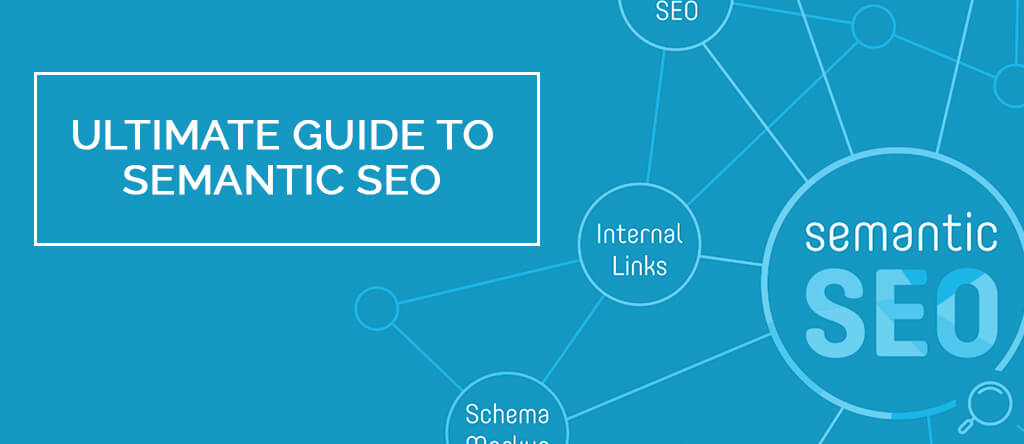
The Ultimate Guide to Semantic SEO
By admin
Search Engines including Google, Bing and Yahoo seem to act more like humans as time is passing by. They are adapting their algorithms to the way people search for queries. Semantic search is one example of how intelligence-based search engines have come to function today. Let’s get more insight into what semantic search is and how to use SEO semantics when devising your content strategy.
What Is Semantic Search?
Table of Contents
There are different ways to complete a search. And Semantic search is one way through which search engines analyze the user’s intent while they run a search. It is impossible to predict the exact keyword phrases people might use when conducting a search query. For there are many ways a user might carry out a search. Keeping this in mind, search engines made an effort to look beyond the actual keyword. They adjusted their algorithms to look at the context and what the user is trying to find through a search query. Thus now if a user types out a query and they are not satisfied with the results, Google will strive to revise that search query. And this is how Google accomplishes a better understanding of the intent of the original search query. The evolution of search engines in this direction has therefore come to directly impact search results and has also altered the considerations for SEO experts when working out a strategy.
Backlinks are important for your website. They transfer users to desirable information. In addition to helping Search Engines, they help you create a solid consumer experience. This article will give you tips on building quality backlinks to your site. This article is a basic overview of how to build a quality backlink. If you want to build a high-quality one, try some of these methods. These are proven to produce better results in less time.
A Clearer Explanation of Semantic Search:
To get a better picture of a semantic search, you can take the following example and run the query yourself. Let’s say, you want to search “movies in the year 2019” using your light-speed internet by Local Cable Deals. After looking at the results, now go on and search for “movies released in 2019”. And look at the results again. You will be surprised to notice how search engines recognize what you are looking for and how they actually get you results for movies released in the year 2019.
How Semantic Search Affects Your Content?
Semantic search affects the content strategy you have if you are going for On-Site SEO. If you have only one strategic keyword in the content, then it is going to make your strategy less effective. The reason is the change in ranking methods. So always keep in mind, there is more than one way to craft a query that can show you the same results with your website listed in there. And since search engines now understand the intent of the people, that requires you to write your content while remaining highly mindful of the user’s intent.
Many people do not realize but they have been already practicing Semantic SEO. In any case here are a few things you should always take into account when working with Semantic SEO as this can be a daunting challenge:
Search for Keywords That Are Semantically Related
In a list of keywords employed by users to run a search looking for your industry, many keywords will appear similar. Also, they can be utilized by the same user to conduct a search while looking for different results. Using a term like “entertainment near you”, a keyword research tool can get you keywords that are semantically related to ‘entertainment places near you’. So keyword research tools can actually furnish an opportunity for you to rank at a better position.
Use The Right Keyword Research Tool
A keyword research tool that gets you the right keywords is one of the essentials you need while practicing SEO semantics. There are many tools that can automatically get this done for you while others do not. Thus when planning and implementing semantic SEO tactics, you must check out the keyword research tool you are using and make sure it is in fact helping you achieve your goals. If you are using a tool that is not capable of recommending semantically related keywords, and does not get you the required result then it is time to switch. You must switch tools so that you are able to harness the power of Semantic SEO, execute more effective SEO semantics, and subsequently earn more profits of your SEO effort.
Use Keywords That Are Semantically Related in Your Content
As we have mentioned earlier, you might be practicing SEO semantics in your content and you might not be aware of this. For instance you must have rephrased your keywords many a time to avoid repetition in your content. This rephrasing is actually one great way to understand SEO semantics. All you need to do is rephrase your keywords and use semantically related ones in order to stay on the right path.
The bottom-line is when it comes to search engines, they are undoubtedly learning to look behind individual search queries and individual search phrases – they find results that don’t necessarily match the terms employed, but they do understood the intent of the user. Even if a user conducts a search through speech, Voice search engine semantics would become the new way to make sure your website doesn’t get overlooked whether or not keywords are targeted.


